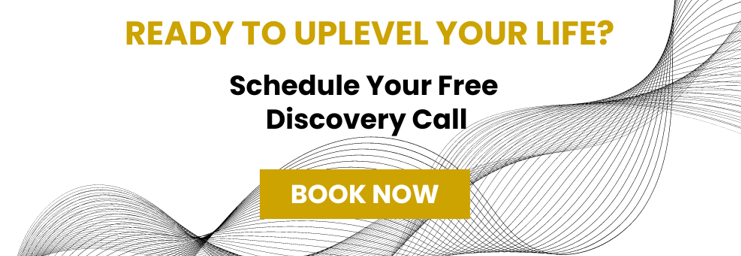Did you know that the thoughts you think control your reality? If not carefully handled, the effects of negative thinking can create severe damage to the body and one’s overall health.
In the following post, I’ll discuss how thoughts can impact your body and general health I’ll share research from several industry experts and also explain how hypnotherapy can be a great tool for accessing the root causes of ailments and patterns.
What are Thoughts: The Roots of Our Ailments
While there may be environmental causes of ailments, there is compelling evidence of the underlying psychological and emotional connections to these physical expressions. A 30-year study by Psychologists Suzanne C. Segerstrom, Ph.D., and Gregory E. Miller, Ph.D., revealed, “Stressful events reliably associate with changes in the immune system and…characteristics of those events are important in determining the kind of change that occurs.”
Hence, by starting with the type and nature of a person’s stress, through any presenting evidence, we can follow a pathway directly to the underlying, specific, root or cause.
This is good news because it restores the power of healing to the individual. The state of your health is not as random as we may have been led to believe.
The Role of the Subconscious Mind in Illness and Healing
A common concern is how worrying affects the body. After years of laboratory research, Bruce Lipton, Ph.D., a noted cellular biologist, writes in his book, The Biology of Belief: “Thoughts, the mind’s energy, directly influence how the physical brain controls the body’s physiology Thought “energy” can activate or inhibit the cell’s function-producing proteins via the mechanics of constructive and destructive interference.”
“The fact is that harnessing the power of your mind can be more effective than the drugs you have been programmed to believe you need. Energy is a more efficient means of affecting matter than chemicals…. In a community of cells, each cell must acquiesce control to the informed decisions of its awareness authority, the brain. The brain controls the behavior of the body’s cells. This is a very important point to consider as we blame the cells of our organs and tissues for the health issues we experience in our lives.”
In Molecules of Emotion, Candance Pert revealed how her study of information-processing receptors on nerve cell membranes led her to discover that the same “neural” receptors were present on most, if not all, of the body’s cells Pert’s work gives clear evidence of how negative emotions affect your health.
Her elegant experiments answered the question, “Where is the mind located?” she determined that the “mind” was not focused in the head but was distributed via signal molecules to the whole body. As importantly, her work emphasized that emotions were not only derived through the feedback of the body’s environmental information: “Through self-consciousness, the mind can use the brain to generate “molecules of emotion” and override the system While proper use of consciousness can bring health to an ailing body, inappropriate unconscious control of emotions can easily make a healthy body diseased.”
She continues: “Reflex behaviors may be as simple as the spontaneous kick of the leg when a mallet taps the knee, or as complex as driving a car at sixty-five miles per hour on a crowded interstate highway while your conscious mind is fully engaged in conversation with a passenger Though conditioned behavioral responses may be inordinately complex, they are “no-brainers.”
Hardwiring the Brain
The conditioned learning process hardwires neural pathways between eliciting stimuli and behavioral responses to ensure a repetitive pattern. Hardwired pathways are “habits.” The actions of the subconscious mind are reflexive in nature and are not governed by reason or thinking.
The self-conscious mind is extremely powerful. It is endowed with the ability to be self-reflective. It can observe any programmed behavior we are engaged in, evaluate the behavior, and consciously decide to change the program. The conscious mind’s capacity to override the subconscious mind’s pre-programmed behaviors is the foundation of free will.
Deepak Chopra, in his book Quantum Healing, states: “No one knows why the intellect is so powerless to change these distortions in self-image The ghost gets stronger the more you fight it Although anorexics will persistently deny that they have a problem, once the doctor pierces this defense, it is clear that a profound split in the body-mind is involved, with one part of the system struggling to maintain rationality while another sends up wildly irrational impulses.”
Chopra continues, “Normal reality is like a spell–a very necessary one since we must live by habits, routines, and codes that we take for granted The problem arises when you can make the spell but not break it If you could dive, this very minute, below your everyday reality to its source, you would certainly have a remarkable experience While Maslow viewed peak experiences as accidents or as moments of grace, I (Chopra) believe that they were glimpses into a field that underlies everyone’s life, but which has remained elusive The implication is that we should dive very deep if we want to transcend normal reality We are in search of an experience that will reshape the world.”
How Hypnosis Can Help Retrain Thoughts on Health
Hypnosis is a profound state of relaxation. In it, the focused mind achieves heightened sensory awareness when applied techniques take the brain waves of a subject to the level of alpha or below. As hypnotherapists, we provide an energetic space and intention and deliver certain techniques that assist the client in changing and healing.
Hypnosis and NLP collaborate to aid in the exploration and discovery of the roots of these stresses. Relief, recovery, and a return to a person’s true, healthy, vital, happy, blissful state are the goals and possibilities of these techniques.
Hypnosis is profoundly successful because, during the session, the client discovers the root of the issue–usually where, when, and how a habit, reaction, or perspective was initiated. Once this is discovered, the client is guided through a series of techniques that provide the opportunity to change their perspective about the initial event.
In this safe space, they can explore options and choose a new pathway to resolution. Once completed, the subconscious mind now sends new, healthier signals to the body.
The clients themselves are responsible for the results of the process. We, as hypnotherapists, cannot make anyone change or heal. By allowing an individual to discover the cause of their issue and to co-create the resolution, they have greater awareness and a sense of ownership in the process.
Ending Thoughts
By changing our thoughts, the state of our health, in fact, our lives, is altered. If you are able to reprogram your subconscious mind, you’ll be able to cease the effects of negative thinking on health.
In the words of Mahatma Gandhi:
“Your beliefs become your thoughts, Your thoughts become your words, Your words become your actions, Your actions become your habits, Your habits become your values, Your values become your destiny.”
In other words, our beliefs and thoughts ultimately shape our destiny What will this mean to you and those who come to you seeking change and growth?
The workings of the conscious and subconscious mind should be tended to so that we can control the path we choose to walk. Thankfully, help and assistance are available. You can take the first steps in caring for your health and body by reducing and eliminating the effects of negative thinking.
Have you seen evidence in your life of how your thoughts affect your health? If so, please share it below!



